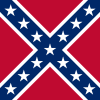

| Online: | |
| Visits: | |
| Stories: |

| Story Views | |
| Now: | |
| Last Hour: | |
| Last 24 Hours: | |
| Total: | |
Hubs of Empire: Outside of ‘The Narrative’
Dr. Matthew Mulcahy of Loyola University Maryland points out in Hubs of Empire: The Southeastern Lowcountry and British Caribbean (Johns Hopkins University Press, 2014) that the colonial Lower South has generally been seen as “too distinct” to fit into the mainstream American historical narrative. He argues that “there are good reasons… for thinking about the Lowcountry and the islands as part of a broader region, the Greater Caribbean.” He presents a Golden Circle narrative which challenges the New England-centric (and anti-Southern) perspective of American history:
[T]his book makes an argument for considering the British plantation colonies in the Caribbean – particularly the major islands of Barbados, Jamaica, Antigua, St. Christopher, Nevis, and Montserrat – and the Carolina and Georgia Lowcountry – a coastal zone stretching from the Cape Fear River to the Altamaha River in Georgia and inland roughly fifty miles – as a distinct region, the British Greater Caribbean. These colonies do not loom large in the historical imaginations of many Americans. The phrase “colonial America” is more likely to call forth images of Boaton, Salem, or Williamsburg in the minds of most Americans rather than the sugar plantations in Antigua or the governor’s mansion in Spanish Town, Jamaica. One reason is that the island colonies did not join their mainland counterparts in the revolution against British rule in 1776. As a result, they are often ignored or marginalized in textbooks and courses dealing with the colonies that eventually formed the United States. Similarly, the Carolina-Georgia Lowcountry, with an economy focused on rice production and a majority population of enslaved Africans, has long been viewed as a place apart from the other mainland colonies. Its history and experiences often seemed too different, too distinct to fit into larger narratives concerning “the thirteen colonies” as anything other than exceptions.
Dr. Mulcahy continues, pointing out that the old New England-centric narrative is no longer completely without competition:
U.S. historians increasingly have recognized that the boundaries of colonial British America extended beyond the North American mainland, and several have highlighted links between the island and the Lowcountry in particular. Nevertheless, few scholars consider these colonies as forming a coherent region akin to the more familiar groupings of New England, the Chesapeake, or the Middle Colonies.
The author then goes on to explain how the British plantation complex developed in Barbados, was taken to Carolina and then spread throughout the South.
Mulcahy draws many of the same conclusions we have in numerous previous articles on Occidental Dissent and in my book Our Southern Nation: Its Origin and Future about the Golden Circle and the planation South:
- Restores an older perspective of American history which was largely erased from public mind after Lincoln’s conquest of Dixie.
- Underscores that there were more than 13 British American colonies.
- Places the South “at the center of analysis, rather than at the periphery.”
- “Helps render both the Lowcountry and the islands less anomalous within the larger context of colonial British America.”
- And “highlights the diverse influences that shaped the development of colonial British America, and in the longer term, the development of the United States.
This then is essentially a Southern Nationalist text even if the author did not mean for it to be. It represents the power of our historical perspectives to re-enter the mainstreamin and challenge anti-Southern narratives and raise consciousness within our people.
Source: http://www.occidentaldissent.com/2017/03/29/hubs-of-empire-outside-of-the-narrative/


